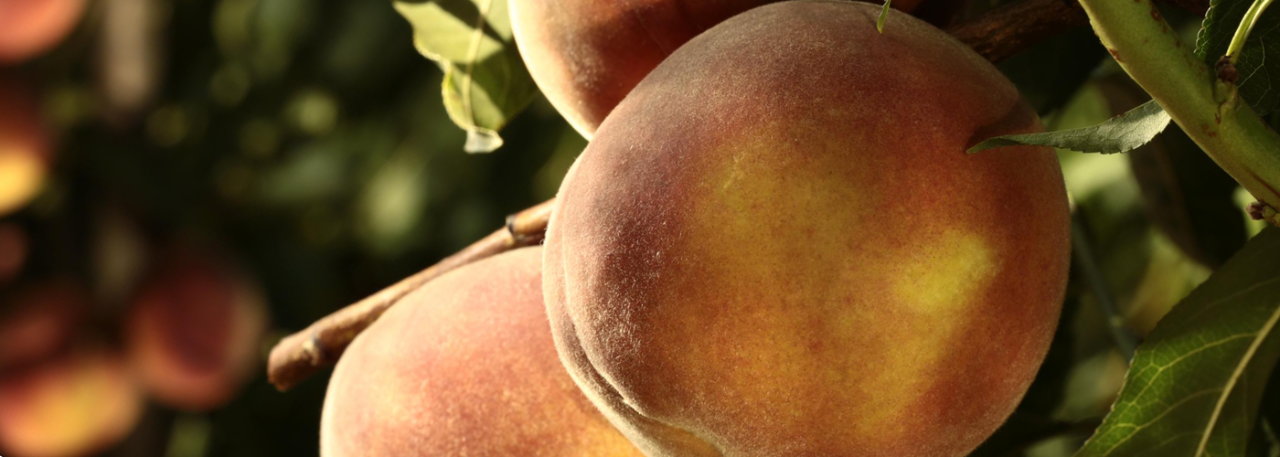.png.transform/rendition-xs/image_image%20(1).png)
Peaches
The fruit of Prunus Persica, a small deciduous tree with a maximum height of 6 m / 18 ft, although it is not uncommon for it to exceed its shrub size. It has a smooth, ash-colored bark which peels off in strips.
The peach is a large drupe with a diameter of between 5.5 cm / 2 ft and 8.5 cm / 3.3 ft, with a thin skin, velvety exterior texture, fleshy mesocarp, and a stone endocarp containing the seed.
Tasting notes
The flesh is meaty, sweet and juicy, occasionally white in color, compact and extremely sweet, whereas in other varieties it is red or orange, soft and less sweet.
Other notes
Peaches can be distinguished from other stone fruits by their characteristic velvety skin. There are two large families of peaches, according to their skin:
- the yellow-skinned peach
- the red-skinned peach, which may also have yellow or white flesh.
The color may range from yellow and orange to red. The flesh is juicy and aromatic.
Production / Processing method
Peach cultivars can be divided into two large groups according to the type of fruit:
- Soft flesh, not attached to the endocarp and destined for commercialization as fresh fruit.
- Firm flesh, firmly attached to the stone, and destined primarily for processing for canning and bottling.
According to the period in which the fruit is harvested, peaches are classified as early, semi-early mid-season or late.
Particularly famous are the peaches from Calanda, a town in the Bajo Aragón region in the province of Teruel, which are protected by a PDO (Protected Designation of Origin).

